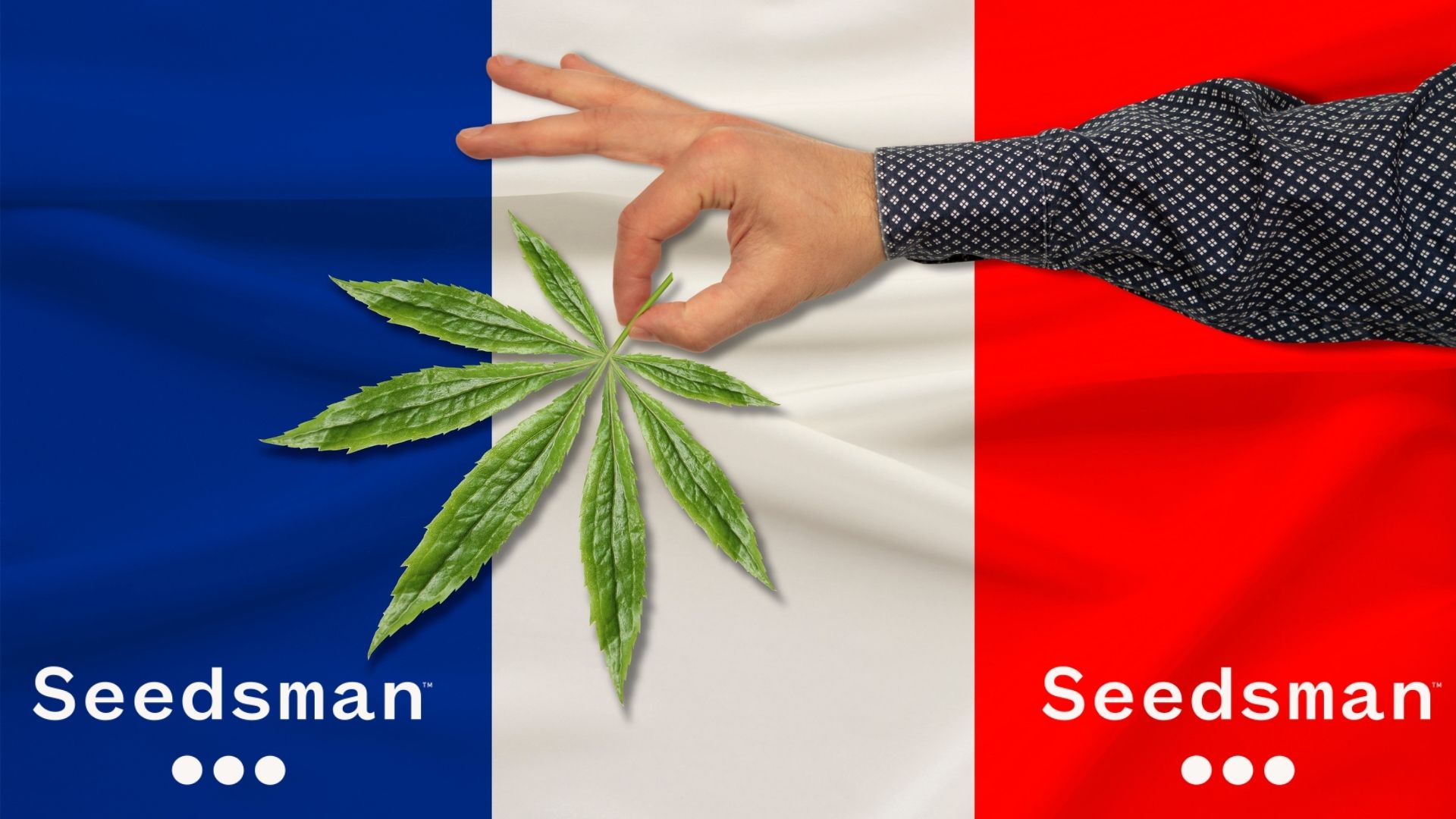
Will France Legalise Cannabis? – Seedsman Blog
Spoiler, it’s no.
But it’s worth taking a closer look to see why France is one of the only countries in the world to pursue a strict prohibitionist policy while the rest of the world is slowly moving towards legalisation.
In April 2022, the French will be called to the polls to elect their next president. The election campaign is in full swing at the moment. Despite COVID and a flatlining economy, this election is based on the ideas of security and identity. And thus it’s no surprise candidates on the right are looking likely to win. And those in the running have made their stances on cannabis quite clear.
Let’s take a quick look at the opinions of the primary candidates in the election, ranked according to intended votes.
Macron (Current President)
On the right, the current president Emmanuel Macron ( who has 24% of intended votes) has very rarely spoken out on the issue of cannabis. On the other hand, his Minister of the Interior, Gérald Darmanin, has more than once underlined his deep hostility to “this shit”, as he himself calls it.
France’s policy in recent years has therefore been to fight cannabis. Gérald Darmanin has imposed a fixed fine of €135 on all cannabis users and has repeatedly expressed his hostility to the plant in the media.
The French government is so opposed to cannabis that it is also attacking CBD. At the end of 2020, the European Court of Justice ruled that France’s ban on CBD was illegal.
As a result, CBD shops have sprung up at an incredible rate across the country.
Unsurprisingly, this movement has shocked a large section of the population who are still steeped in anti-cannabis stereotypes and prejudices and who do not know the difference between CBD and THC. Yet, this fringe of the population is precisely the one that votes for Macron. The president, therefore, has to please these people.
So, the government once again banned the sale of CBD flowers on 2 January 2022. Unsurprisingly, the Council of State has just lifted this measure because it is unconstitutional.
Even if members of the presidential party are more open to a more permissive approach, it is clear that Macron is seeking to please a rather older and reactionary electorate. Therefore, it is doubtful that he will legalise cannabis during his likely second term.
The Extreme Right
Marine Le Pen (17%) and Éric Zemmour (15%) are the far-right candidates. Both are reactionaries defending old-fashioned values and are, therefore, unsurprisingly, fiercely opposed to possible relaxation of the law. They also propose increasing the number of police officers and drug regulation. If either of them wins, there is no chance that cannabis is legalised.
Éric Zemmour is new to politics and therefore has very few people around him. On the other hand, Marine Le Pen is surrounded by well-known figures, many of whom occupy leading positions. Yet all of them, without exception, from the youngest to the oldest, have declared themselves opposed to cannabis.
The Traditional Right Wing
The traditional right is embodied by Valérie Pécresse, who is credited with 13% of the intended vote. She was nominated as her party’s candidate following a primary that highlighted the importance of security as a campaign issue for her potential voters. Valérie Pécresse has often spoken out against cannabis in the past. She defends her position by saying that “If we legalise cannabis, we blow up the ban on drugs”, and she, therefore, advocates an increase in fines against users. Even though her son was arrested for possession of cannabis a few years ago, she has never changed her stance.
Although there are voices within Valérie Pécresse’s party calling for a new approach to cannabis (Rachida Dati, Gil Avérous and Nicolas Sarkozy himself, to a certain extent), it is highly unlikely that she will change her mind. The themes of the presidential campaign are pushing the candidates to present themselves as inflexible on security issues. She even introduces herself as the Iron Lady.
On the Left
The French left is extremely divided and has almost no chance of winning the elections. The best-placed candidate, Jean-Luc Mélenchon (12% of intended votes), declared himself in favour of legalisation to fight against cannabis. “I am not in favour of cannabis, but I am in favour of legalising cannabis because I am not in favour of cannabis”, he says.
This position is only paradoxical in appearance. Indeed, Jean-Luc Mélenchon explains, “If a product is banned, you can’t campaign against it.”
The ecologist candidate, Yannick Jadot (5% of voting intentions), was also in favour of hemp in all its forms, especially in its industrial applications. He has thus taken a position in favour of the controlled legalisation of cannabis. Interestingly, during a visit to a laboratory active in therapeutic cannabis, he made this declaration on January the 8th, thereby underlining the interest in cannabis as a therapeutic product.
The representative of the historic left-wing party, Anne Hidalgo, is credited with only 4% of voting intentions. These poor polls reflect a certain inability to take clear positions on many social issues. This is particularly true of cannabis. Indeed, when asked about the possibility of legalising marijuana, she answers ambiguously: “There are neighbourhoods that are completely rotten with drugs. And for me, the issue is not so much whether or not to legalise the use of cannabis. It is to know if there is no plan against drugs that this country must carry with force because it is an economy that is damaging everything.”
Conclusions
Both the right and the far-right stand a great chance in these elections. Macron’s handling of the COVID crisis, as well as the unwillingness of the youth to vote, could spell the end of his tenure. In the regional elections in 2021, abstention reached 66%.
The electorate is mainly made up of older people from the upper-middle class. This type of profile supports the social and political status quo. Or, anti-cannabis.
As for the protesters who do vote, they often choose the far right. Their backwards-looking discourse leaves little room for the slightest change in the area of cannabis. If the left-wing candidates fail to impose their themes on the campaign, there is no chance that France will make any progress on cannabis reform. Unless, of course, Europe forces it to do so, as was the case with CBD.
Cultivation information, and media is given for those of our clients who live in countries where cannabis cultivation is decriminalised or legal, or to those that operate within a licensed model. We encourage all readers to be aware of their local laws and to ensure they do not break them.
Source link











